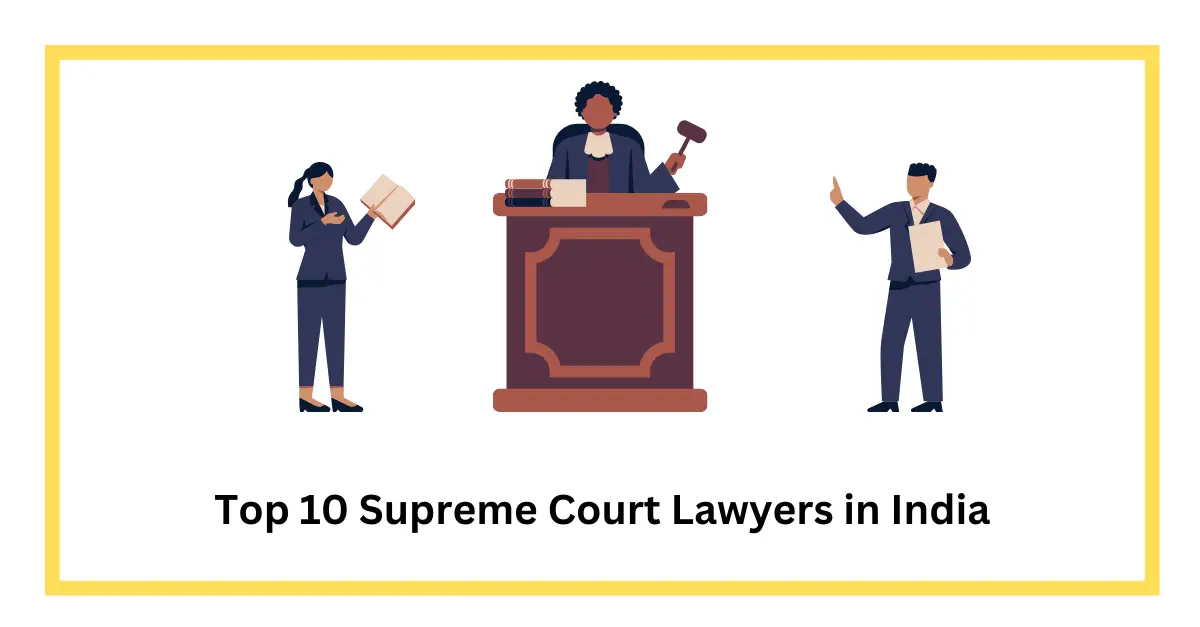Advocates of the Supreme Court play a significant role in the legal field as they are responsible for upholding, preserving, and consolidating the legitimate values of democracy, freedom of the judiciary, and the rule of law.
Supreme Court Lawyers, the Constitution of India established the Supreme Court as the ultimate judicial authority under Article 124. This establishment officially took place on January 26, 1950, alongside the Constitution’s enactment. Initially, the Court operated from the old Parliament House before moving to its current location on Tilak Marg, New Delhi, in 1958.
On January 28, 1950, two days after India became a republic, the Supreme Court held its official inauguration ceremony in the Chamber of Princes in the old Parliament building, where the Federal Court had operated from 1937 to 1950. The inauguration began at 9:45 am and was a prestigious affair attended by the first Chief Justice of India, Harilal J. Kania, Judges from the previous Federal Court, Chief Justices from various High Courts, the Prime Minister, foreign dignitaries, and legal representatives. They documented the proceedings to ensure a smooth transition, including publishing the Supreme Court’s rules and transferring advocates and agents from the Federal Court.
After its inauguration, the Supreme Court initially held its sessions in a section of the old Parliament House. In 1958, the Court relocated to a new building, which Dr. Rajendra Prasad, the first President of India, officially inaugurated on August 4, 1958. Designed to symbolize the scales of justice, the building features a 27.6-meter high dome and a spacious colonnaded verandah. The Central Wing represents the center beam of the scales, with the Chief Justice’s Court, the largest courtroom, located centrally in this wing. Opposite this courtroom stands a life-sized Mahatma Gandhi statue unveiled by the 26th Chief Justice of India, Justice A.M. Ahmadi, on August 1, 1996. On November 26, 2023, Hon’ble President of India, Smt. Droupadi Murmu, in the presence of the 50th Chief Justice of India, Dr. Justice D.Y. Chandrachud, unveiled a 7-foot tall statue of Dr. B.R. Ambedkar, depicting him in a lawyer’s gown holding the Constitution. Visitors can book a guided tour through the Supreme Court website or obtain a visitor’s pass from the SuSwagatam portal or the front desk.
The Supreme Court building has undergone three extensions: the first in 1979, the second in 1994, and the third in 2015. In 1979, the addition of the East Wing and the West Wing increased the number of courtrooms to 19. The 1994 extension connected these wings. In 2015, then Chief Justice of India, Justice H.L. Dattu, inaugurated the New Extension Block near the Supreme Court Museum, which relocated several sections from the original building. On July 17, 2019, Hon’ble President of India, Shri Ram Nath Kovind, inaugurated the Additional Building Complex, spanning 180,700 square meters and including five functional blocks and one service block. This complex, with its sandstone external cladding and rising curvature, reflects the Supreme Court’s original architecture and houses the New Judges’ Library. The 1950 Constitution originally envisioned a Supreme Court with a Chief Justice and seven puisne Judges, allowing Parliament to increase this number as needed. All Supreme Court Judges initially sat together (en banc) to hear cases. However, due to the increasing workload, Parliament raised the number of Judges to 11 in 1956, 14 in 1960, 18 in 1978, 26 in 1986, 31 in 2009, and 34 in 2019, the current strength. Today, Judges typically sit Benches of two or three, with larger Benches of five or more (Constitution Bench) convened to resolve conflicting decisions or address significant constitutional questions. Supreme Court proceedings are conducted in English. The Supreme Court Rules, 2013, govern the judicial practices and procedures of the Registry, along with the Handbook on Practice and Procedure and Office Procedure. The Supreme Court Officers and Servants (Conditions of Service and Conduct) Rules, 1961, outline the conditions of service and conduct for the Court’s staff.
India has a wide range of lawyer fees. Top Supreme Court Lawyers like Harish Salve can sometimes accept symbolic fees for high-profile cases, while other lawyers may charge significant sums for representing businesses in court. If you’re interested, here’s a compilation of India’s ten highest-paid Supreme Court Lawyers in 2024.
Fali Sam Nariman
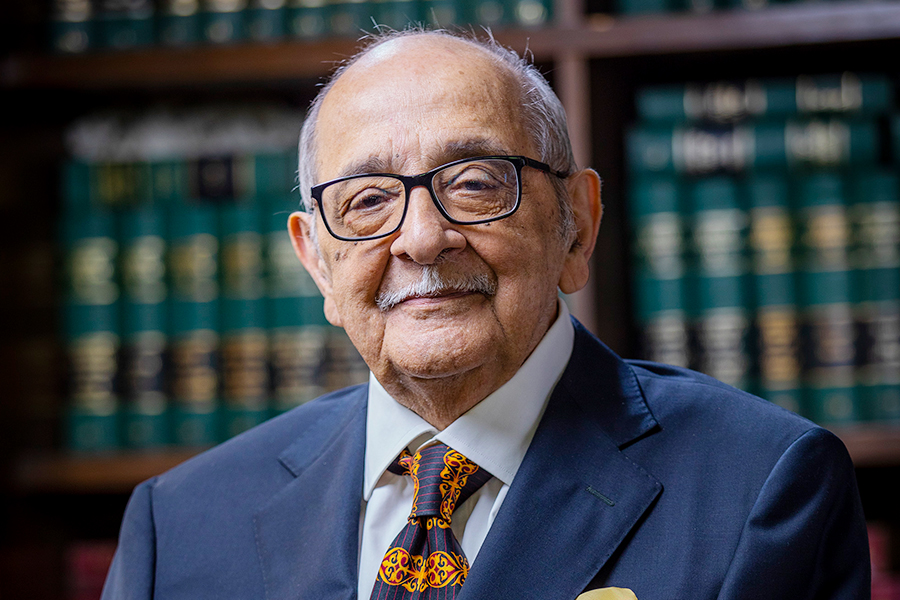
Fali Sam Nariman, a distinguished Indian jurist, has represented high-profile clients in landmark cases. He secured an out-of-court settlement for the victims of the Bhopal Gas Disaster. His legal expertise extends to other significant cases like the MA Pai Foundation and Golak Nath. As a vocal advocate for human rights, Nariman has represented many of the nation’s most prominent activists and victims of human rights violations. In recognition of his contributions, then-President Dr. APJ Abdul Kalam awarded him the Padma Vibhushan in 2007. He reportedly charges between Rs. 10 lakh and Rs. 15 lakh per performance.
Harish Salve
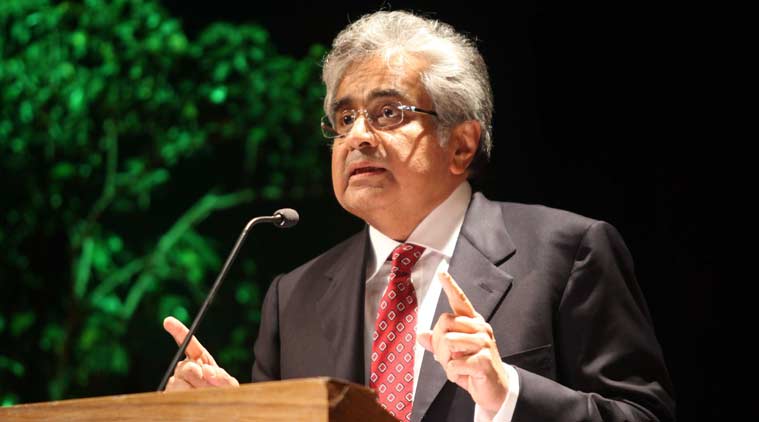
Harish Salve, born on June 22, 1955, in Maharashtra, India, has established himself as a prominent Indian lawyer and human rights advocate renowned for his expertise in constitutional, commercial, and taxation law. He served as India’s Solicitor General from November 1, 1999, to November 3, 2002, during which his tenure showcased his legal acumen and dedication to upholding the rule of law.
Salve has represented several high-profile clients and major corporations, including ITC Limited, Tata Group, and Reliance Industries Limited. His reputation as one of India’s leading Supreme Court Lawyers stems from his ability to handle complex legal matters adeptly. Notably, he represented Kulbhushan Jadhav before the International Court of Justice (ICJ), defending Jadhav, an Indian national sentenced to death by Pakistan on charges of espionage and terrorism.
In addition to his corporate and high-stakes legal work, Salve actively contributes to social justice causes. He is widely recognized for his advocacy on behalf of the impoverished and underprivileged, including his efforts in promoting human rights and combating poverty. His dedication to using his legal skills for the greater good underscores his commitment to social justice.
Salve’s impressive career has earned him respect within the legal community, making him one of the most sought-after lawyers in India. According to online reports, his fees for a court appearance range between Rs. 12 and Rs. 14 lakh, reflecting the high regard and value placed on his legal expertise.
Gopal Subramanium

Gopal Subramanium, a highly respected lawyer from India, is well-known for his expertise in constitutional law and human rights. He has dramatically impacted how laws are interpreted and applied in India. From 2009 to 2011, Subramanium worked as a lawyer for the Indian government. He handled important cases and helped the government correctly understand and follow the law. Throughout his career, Subramanium has been involved in many significant legal cases. He fights for fairness and defends the rights of people. He often speaks in front of judges, especially in the highest court in India, the Supreme Court, where his arguments have helped make crucial decisions. Besides his job as a lawyer, Subramanium cares a lot about fairness and people’s rights. He does free legal work for those who can’t afford it and works to make sure everyone is treated equally and fairly. Because of his impressive career and dedication to doing what’s right, Subramanium is highly respected by other lawyers and many people outside of the legal world. He’s a role model for younger lawyers, showing them how to stand up for justice and ensure the law is followed correctly. At 62 years old, he continues to support the legal community in the country. The Indian President personally awarded Gopal Subramaniam the 2009 National Law Day Award for Outstanding Jurist, affirming his trustworthiness as a lawyer. His presence commands a fee ranging from Rs. 5.5 to Rs. 15 lakh.
K. Parasaran
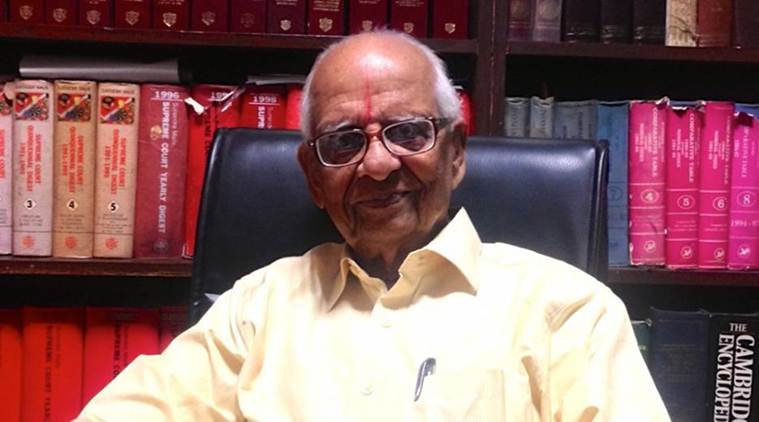
K. Parasaran is indeed among the most renowned and successful Supreme Court Lawyers in India. He has a stellar track record of effectively defending several well-known clients in court, including representing the Hindu parties in the property dispute case in Ayodhya and the Nair Service Society in the Sabarimala case. His legal prowess and strategic advocacy have been instrumental in securing favourable outcomes for his clients in these high-profile cases. Parasaran graduated from the Law College of Madras, laying the foundation for his illustrious career over six decades. Over the years, he has been honoured with several prestigious awards, including the Padma Bhushan and Padma Vibhushan, for his exceptional contributions to the legal field. Given his stature and experience, it’s unsurprising that Parasaran commands a substantial fee for his legal services. While specific figures may vary, estimates suggest that his fee typically ranges between Rs. 10 lakh and Rs. 12 lakh, as reported in various sources on the internet.
Abhishek Manu Singhvi
Abhishek Manu Singhvi is a prominent Indian well-known lawyer, and Member of Parliament. He belongs to the Indian National Congress party. He has held various significant positions in both the legal and political arenas. Singhvi is well-known for his expertise in constitutional and corporate law. He has had a prolific legal career, appearing in several landmark cases and providing legal counsel to high-profile clients. Singhvi’s eloquence and analytical skills have earned him widespread recognition within the legal community. In addition to his legal career, Singhvi has been actively involved in politics. He has served as a Member of Parliament in both the Rajya Sabha (the upper house of the Indian Parliament) and the Lok Sabha (the lower house). Within the Congress party, he has held various leadership roles. He has been a vocal advocate for the party’s policies and principles. Singhvi is also known for his articulate and persuasive oratory skills, often representing his party’s stance on various national and international issues in public debates and media appearances. Overall, Abhishek Manu Singhvi is a multifaceted figure who has significantly influenced India’s legal and political spheres.
K. K. Venugopal
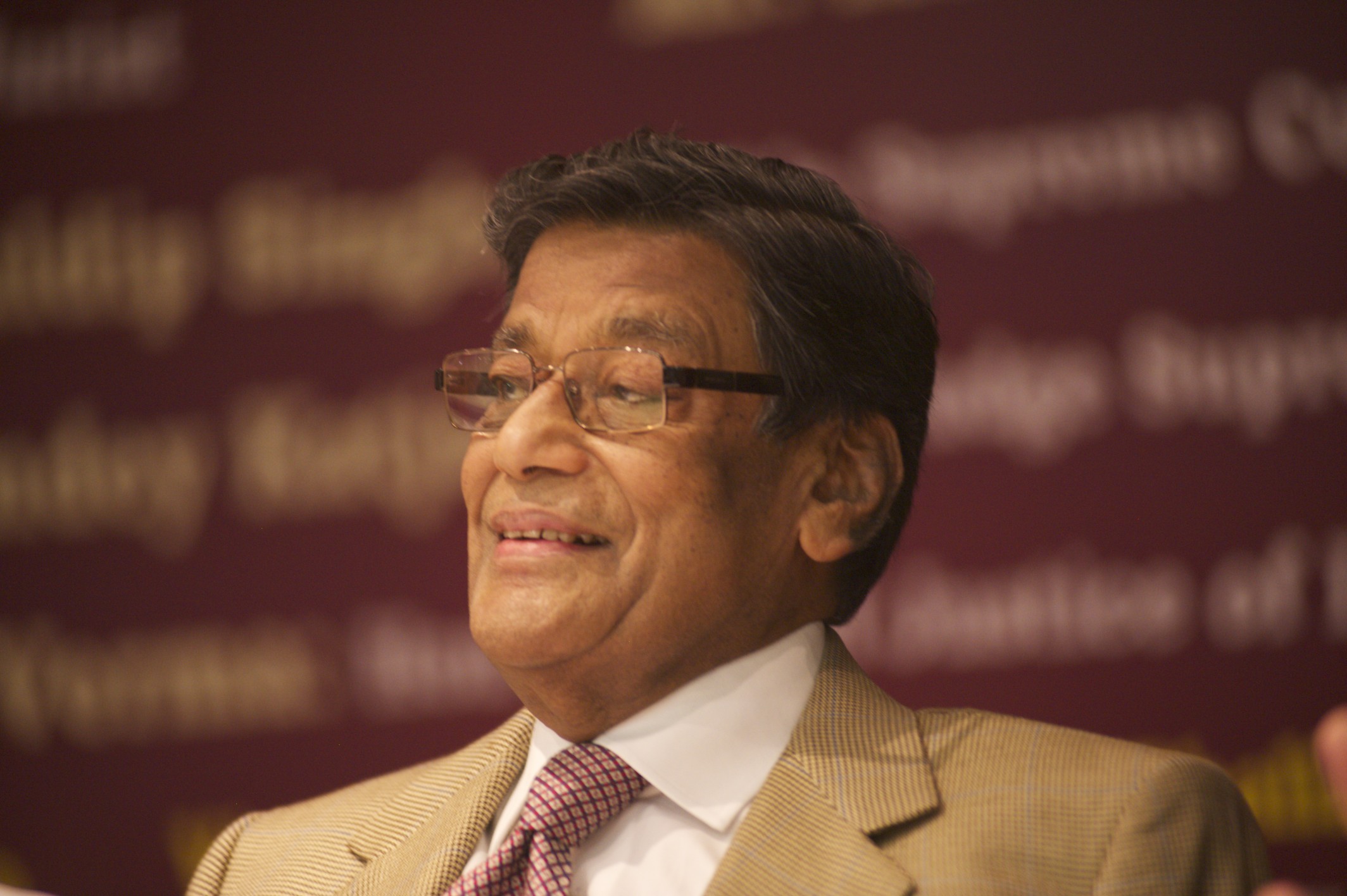
Kottayan Katankot Venugopal, or K. K. Venugopal, was India’s top lawyer as the Attorney General. He’s had a long and successful legal career, specializing in constitutional matters and handling many important cases. He’s represented various clients, including the government, in important legal battles. Apart from his work in court, he’s also written and lectured extensively on legal topics. People respect him for his deep knowledge and ability to argue well. 2017 he became the Attorney General, taking over from Mukul Rohatgi. He’s received many awards for his contributions to law over the years. As Attorney General, he’s focused on protecting the government’s interests and sticking to strong principles in legal matters.
Palaniappan Chidambaram
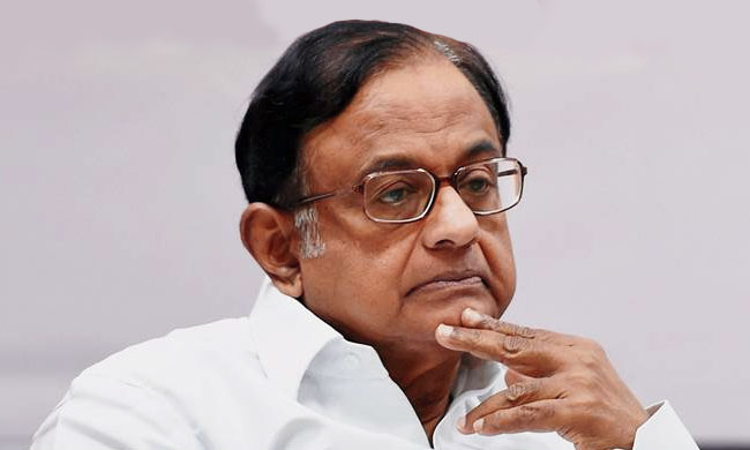
In the INX Media case, authorities accused Chidambaram of corruption and money laundering. After his arrest in 2019, he secured bail from the Supreme Court by challenging procedural lapses and the lack of concrete evidence. This case underscored his significant influence in both legal and political arenas. Beyond the courtroom, Chidambaram writes prolifically on legal and economic issues for various journals and newspapers. He emphasizes constitutional principles and the protection of individual rights, demonstrating his broad impact on India’s legal landscape.
Mukul Rohatgi
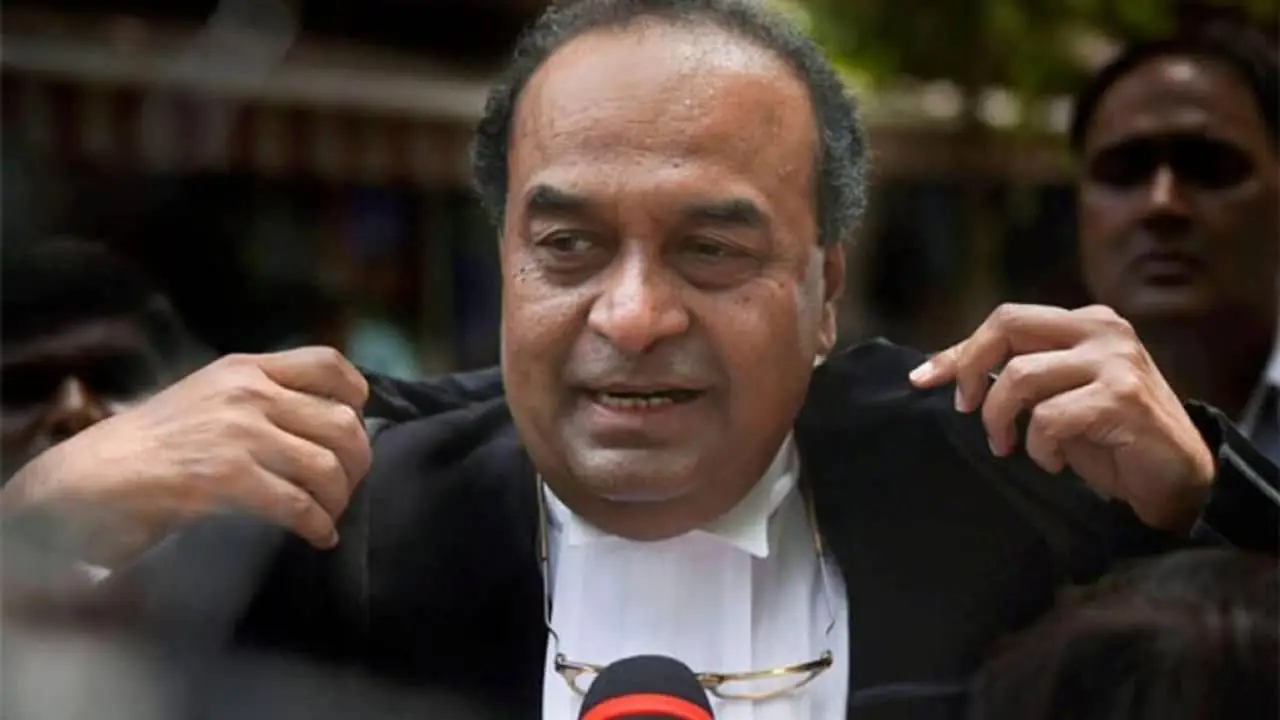
Mukul Rohatgi is a well-known Indian lawyer with an impressive legal career. He served as the 14th Attorney General for India from June 2014 to June 2017, providing essential legal advice to the government and representing it in several important cases. Appointed by the Narendra Modi administration, Rohatgi followed Goolam E. Vahanvati and quickly became a key figure in Indian law. His constitutional and corporate law expertise has made him a highly respected advocate in the Supreme Court of India.
Rohatgi completed his law degree at the Government Law College in Mumbai, which laid the foundation for his successful career. Over the years, he has represented many high-profile clients and handled numerous significant cases. For example, he represented the Gujarat government during the hearings on the 2002 Gujarat riots, showing his ability to manage cases with considerable political and social significance. He also played a crucial role in major legal battles related to the Aadhaar system and the constitutionality of the National Judicial Appointments Commission (NJAC). Even after his tenure as Attorney General, Mukul Rohatgi remains influential in the legal field. He remains active in high-profile cases and provides legal opinions on critical national issues, maintaining his influence and respect within the legal community. The media often seek his insights, making him a regular commentator on current legal matters. Rohatgi’s contributions to the field of law have earned him widespread recognition and respect. His involvement in significant cases related to LGBTQ+ rights, corporate disputes, and constitutional law highlights his versatility and dedication to justice. As he continues his private practice, Mukul Rohatgi’s legacy as a leading figure in Indian law is firmly established, marked by his commitment to upholding justice and his significant impact on the legal landscape of India.
C. Aryama Sundaram

C. Aryama Sundaram’s influence extends far beyond the courtroom, shaping a legacy of excellence in the legal profession. With a wealth of knowledge spanning various legal domains, he has adeptly navigated complex court cases involving prominent figures such as Anil Ambani and institutions like the Board of Control for Cricket in India (BCCI). His skill in defending clients, particularly in disputes concerning financial settlements, highlights his unwavering dedication to those he represents.
Reports indicate that Sundaram’s appearance charges start at Rs. 4.5 lakh, reflecting the value placed on his expertise and reputation in the legal community. His ability to provide effective legal counsel and his track record of success have solidified his position as one of India’s foremost legal minds. Beyond his courtroom victories, Sundaram’s impact is felt in his commitment to upholding the principles of justice and fairness. His dedication to his clients and mastery of legal intricacies have earned him respect and admiration from colleagues, clients, and observers. As he continues to leave his mark on the legal landscape, C. Aryama Sundaram’s legacy of excellence inspires aspiring Supreme Court lawyers and is a testament to the power of legal advocacy done with integrity and skill.
Salman Khurshid

Salman Khurshid is a well-known Indian politician, lawyer, and author who has significantly contributed to politics and the legal field. He has been an active member of the Indian National Congress party, holding important roles such as Minister of External Affairs and Minister of Law and Justice. Before entering politics, Khurshid studied law at respected institutions like St. Stephen’s College, University of Delhi, and Trinity College, Oxford. Apart from his political career, he has authored several books. In his political roles, Khurshid has played a key part in shaping India’s foreign policy and legal system. He has represented India internationally and has been involved in creating important policies and laws. Additionally, Khurshid has been dedicated to public service, working on education, healthcare, and social justice projects. He has been sought after in his legal career for his expertise in handling high-profile cases. Despite changes in the political landscape, Salman Khurshid remains influential, contributing to important discussions and advocating for causes he believes in, significantly impacting Indian society and politics.
Conclusion
Top Supreme Court lawyers in India, such as Fali Sam Nariman and Salman Khurshid, are highly respected for their experience and success. This list highlights the variety of talented lawyers in the country, whose fees reflect their expertise and the value they bring to clients. These lawyers have all made a significant impact on India’s legal system.
At Vakilsearch, we’re dedicated to connecting clients with top-tier legal talent. Our commitment to excellence ensures you’ll have access to skilled, committed professionals who can address your needs effectively through our online lawyer consultation services.
We’re not just about established names; we also nurture emerging talent. Through a rigorous selection process, we ensure that only the most promising lawyers join our network, guaranteeing high-quality representation. By pairing our exceptional lawyers with our innovative Libra Case Management Tool, Vakilsearch offers a comprehensive legal solution. Whether you need assistance with a complex issue or proactive advice, count on us for seamless, satisfactory service.
FAQs on Supreme Court Lawyers
Who is the best Supreme Court lawyers in India?
The best Supreme Court lawyers in India is often subjective and can vary based on the case and the client's needs. Some of the most renowned include Fali S. Nariman, Harish Salve, and Mukul Rohatgi, known for their extensive experience and high-profile cases.
Who are India's top 5 Supreme Court Lawyers?
India's top 5 Supreme Court Lawyers are often considered to be Fali S. Nariman, Harish Salve, Mukul Rohatgi, Abhishek Manu Singhvi, and P. Chidambaram. These lawyers have built reputations for their expertise and success in handling significant and complex cases.
Who is India’s famous criminal lawyer?
Ram Jethmalani was one of India's most famous criminal lawyer, known for defending high-profile clients in some of the country's most notorious cases. His legal acumen and bold courtroom presence made him a legend in criminal law.
How many lawyers are there in the Supreme Court of India?
There is no fixed number of practicing Supreme Court lawyers in India, but it is estimated that there are thousands of advocates registered to practice, including many senior advocates who specialize in various fields of law.
Which lawyer has the highest salary?
Harish Salve is often cited as one of the highest-paid lawyers in India, known for charging substantial fees for his expertise, particularly in high-stakes corporate and international arbitration cases.
Who is the top lawyer of the Supreme Court?
Determining the top Supreme Court Lawyers can vary, but Harish Salve and Fali S. Nariman are frequently recognized for their outstanding contributions, extensive experience, and notable success rates in high-profile cases.
Who is the No 1 advocate in India?
The No. 1 advocate in India can be subjective, but Harish Salve and Fali S. Nariman are often mentioned as leading figures due to their significant influence, expertise, and track record in landmark cases.
Who is the biggest lawyer in Indian history?
M. K. Gandhi, also known as Mahatma Gandhi, is considered one of the biggest Supreme Court Lawyers in Indian history. Before leading India to independence, he was a highly respected lawyer who used his legal expertise to fight for civil rights and justice.
